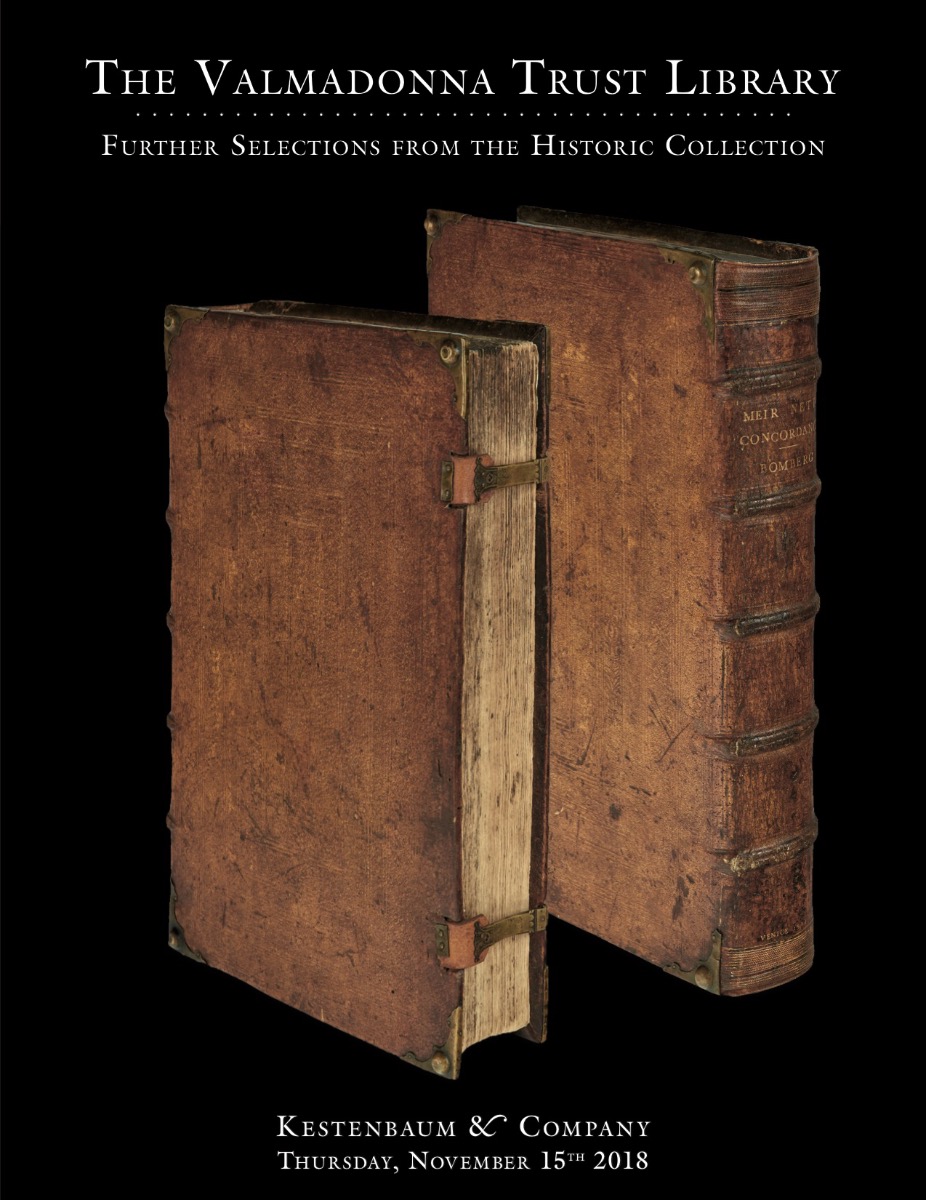Mordecai, Jacob (1762-1838). Autograph Manuscript in English (and some Hebrew) entitled: “Explanations of the Sacrifices from Maimonides More Nevochim or Teacher to the Perplexed.”

AUCTION 79 |
Thursday, November 15th,
2018 at 1:00 PM
The Valmadonna Trust Library: Further Selections from the Historic Collection. * Hebrew Printing in America. * Graphic & Ceremonial Art
Lot 202
(AMERICAN JUDAICA)
Mordecai, Jacob (1762-1838). Autograph Manuscript in English (and some Hebrew) entitled: “Explanations of the Sacrifices from Maimonides More Nevochim or Teacher to the Perplexed.”
(Richmond, Virginia): 5590 (1830)
Est: $8,000 - $12,000
PRICE REALIZED $11,000
Jacob Mordecai was the son of Moses and Esther Mordecai, observant Jews who in 1760 emigrated from Germany to Philadelphia. During the Revolutionary War Jacob helped supply the Continental Army as a clerk to David Franks, the Jewish quartermaster to General George Washington and was later employed as a clerk for Haym Solomon’s brokerage firm. In a change of careers, Jacob Mordecai rose to become an educational pioneer in Warrenton, NC, where he ran a private liberal arts high school for women, popularly known as Mordecai’s Female Academy it revolutionized female education in the South, providing women a classical, as opposed to merely domestic, education. In time he settled in Richmond, Virginia, where he developed a close friendship with the newly arrived young immigrant Rabbi who was to make a considerable mark on the fortunes of 19th-century American Jewry: Rev. Isaac Leeser.
See S. L. Falk, The Warrenton Female Academy of Jacob Mordecai, 1809-1818, in: The North Carolina Historical Review 35.3 (1958).
Based upon this manuscript one can learn the profundity of Mordecai’s Jewish scholarship and obtain a window into the private intellectual life of an early American Jew, the topics in Jewish learning that interested him, and the sources he consulted.
